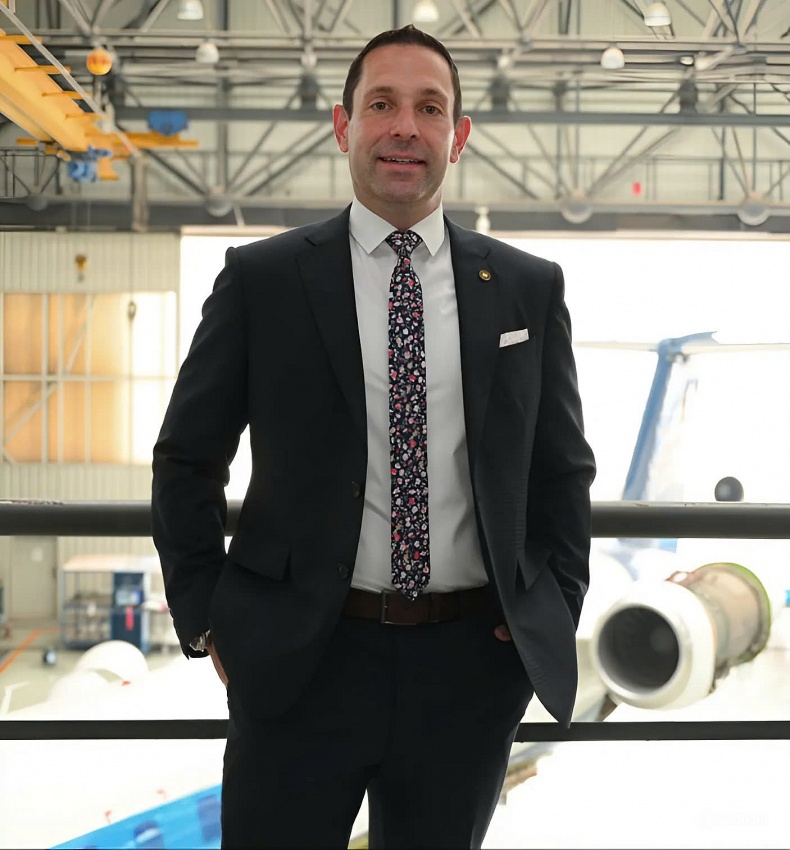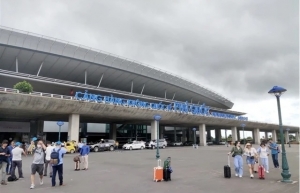Exploiting business aviation to sustain the momentum of foreign investment
What makes Vietnam an attractive market for maintenance, repair, and overhaul providers, as well as private jet manufacturers?
The business jet market globally has followed a consistent developmental trajectory, and Vietnam is now on a similar path, akin to China’s market 20 years ago. Business jets are no longer just a luxury for the ultra-wealthy; they are increasingly essential tools for business and leisure, particularly in Asia, where combining business trips with personal leisure is on the rise.
 |
| Paul Desgrosseilliers, general manager at ExecuJet Haite Aviation Services |
The US market, with more than 15,000 jets, primarily serves publicly traded companies that operate fleets to comply with regulations. In developing markets like Vietnam, business jets represent a necessity for flexibility and efficiency, particularly for businesses operating in remote or underserved locations.
Vietnam’s rapidly growing economy has created strong demand for business aviation, mirroring China’s experience, where fleets expanded from a couple of jets to hundreds as businesses recognised the benefits. However, Vietnam must address its infrastructure limitations to support this growth.
ExecuJet Haite sees significant potential in Vietnam, leveraging our proximity and operational advantages. Flights from Northern China to Hanoi take only three to four hours, and many Vietnamese operators already utilise our services for maintenance and support. Though challenges such as insufficient infrastructure are common across Asia, we see parallels with China’s development.
For example, we recently opened a dedicated business aviation facility in Beijing, featuring 100 parking bays and tailored services. Similar investments in Vietnam could significantly enhance its aviation capabilities.
We are eager to support Vietnam’s progress through investment, infrastructure guidance, and services like maintenance and fixed-based operations (FBO). By sharing our expertise, we can help Vietnam’s business aviation sector thrive and contribute to regional connectivity.
What strategies would you recommend to build partnerships and pull in clients in Vietnam?
For over 20 years, ExecuJet Haite has been active in fostering partnerships across the business aviation ecosystem, encompassing manufacturers like Dassault, Gulfstream, Bombardier, Boeing, and Airbus, as well as engine and avionics companies like Honeywell. Operators, including VistaJet and others, are key participants alongside flight handling, fuel providers, leasing companies, and financial institutions like Bank of America.
During my visit to Vietnam, I observed a collaborative spirit among stakeholders that is unique compared to hyper-competitive markets like China. This openness provides a strong foundation for fostering partnerships. Establishing a local chapter of an industry association – similar to China, where the chapter grew from five to 35 members – could provide a platform for networking, cooperation, and advocacy.
Vietnam’s business aviation market resembles the early stages of China’s development. While Ho Chi Minh City may seem like the logical hub for business aviation due to its economic activity, Hanoi currently has more business jets, primarily serving affluent individuals and local businesses. Charter services in Ho Chi Minh City are expected to grow as companies recognise the value of private aviation for efficiency and flexibility.
With strong community engagement and rising demand, Vietnam’s business aviation sector could double its fleet within three years, creating exciting opportunities for partnerships and market development.
How can ExecuJet Haite support Vietnam’s business aviation growth, particularly with the upcoming Long Thanh Airport?
Engaging with governments to discuss the value of business aviation is essential. Tailored infrastructure, such as FBOs, generates high-paying jobs for pilots, engineers, and maintenance staff while contributing tax revenue and economic growth. For example, our facilities in Beijing and Tianjin employ 70-80 people, creating significant local impact.
Business jets are not just a luxury; they are tools that drive economic growth and entice investment. Cities seeking foreign direct investment must accommodate Fortune 500 executives, many of whom rely on private jets. Without proper infrastructure, these companies will look elsewhere. FBOs equipped with VIP lounges, private terminals, and specialised services leave a strong impression on visiting investors and signal a city’s readiness for high-level business engagements.
China’s experience highlights the importance of infrastructure. Cities like Beijing and Shenzhen have developed dedicated business aviation facilities, showing that even small airports with 12-15 parking bays can pull in investment. Despite challenges like military-controlled land in some areas, private companies are willing to invest when partnerships are in place.
Raising awareness about the benefits of business aviation is equally important. Often misunderstood as purely luxurious, the industry drives local economic development, creates jobs, and fosters growth. Educating governments, local planners, and communities about these advantages will help position Vietnam as a prime destination for business aviation.
Collaboration, specialised training, and robust advocacy are key to fostering a thriving business aviation sector in Vietnam. By working together, Vietnam can unlock the long-term growth potential of this promising industry.
| Ha Tien Dung, deputy managing director Hai Au Aviation Business aviation in Vietnam is not just a luxury; it’s an essential tool for businesses and investors. Demand is emerging in new forms, such as shared ownership and private charter services, where companies offer private jet flights allowing travellers to benefit from the convenience without owning the aircraft. Beyond the aircraft itself, critical support services such as flight permits, ground services, maintenance, and financing solutions are interconnected and require local collaboration for efficiency. Airport infrastructure, such as FBOs providing VIP lounges, customs, and maintenance facilities, is crucial but still underdeveloped. With the soon-to-open Long Thanh Airport, Vietnam has yet to address these needs. This gap highlights the importance of local communities understanding the economic potential of business aviation, such as generating revenue through hangar space or offering tailored services for business jets. The key to developing this sector is fostering collaboration among local businesses and government stakeholders. Without this, the opportunities in business aviation will remain untapped. It is essential to raise awareness about its economic impact and advocate for the infrastructure and services that will drive growth in this industry, benefiting not just high-net-worth individuals but the broader economy as well. |
 | Plans of Phu Quoc airport capacity expansion by 2050 proposed The Civil Aviation Authority of Vietnam (CAAV) has recently submitted a proposal to the Ministry of Transport on the expansion of the Phu Quoc International Airport in the Mekong Delta province of Kien Giang to accommodate 18 million passengers per year by 2050. |
 | Concerted efforts needed for sustainable aviation Vietnam’s sustainable development goals have been clearly outlined, and its leaders have committed to achieving net-zero emissions by 2050, demonstrating the country’s dedication to the international community. |
 | Long Thanh International Airport's road to success paved with obstacles Long Thanh International Airport in Dong Nai province is expected to give southeast Vietnam an economic boost when it opens in 2026, but this opportunity will arrive with multiple challenges. |
What the stars mean:
★ Poor ★ ★ Promising ★★★ Good ★★★★ Very good ★★★★★ Exceptional
Related Contents
Latest News
More News
- Manila becomes a new check-in destination for Vietnamese youth (December 11, 2025 | 18:07)
- Vietjet launches mega year-end ticket promotion (December 10, 2025 | 11:33)
- Dalat leads Vietnam’s 2025 search trends (December 09, 2025 | 13:44)
- Vietnam welcomes record wave of international visitors (December 09, 2025 | 13:43)
- Vietjet launches daily Manila flights to celebrate year-end festive peak season (December 05, 2025 | 13:47)
- The destinations powering Vietnam’s festive season travel demand (December 04, 2025 | 18:33)
- Vietnam named among the world’s most exciting winter destinations (December 04, 2025 | 15:10)
- Phu Tho emerges as northern Vietnam’s new tourism hub (December 01, 2025 | 17:00)
- Vietjet completes Airbus A320/A321 updates ahead of deadline (December 01, 2025 | 09:49)
- Vietjet resumes Con Dao flights from early December (November 28, 2025 | 15:24)

 Tag:
Tag:




















 Mobile Version
Mobile Version